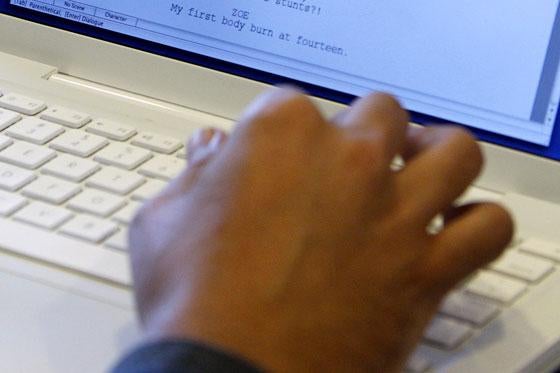
So you’re wondering where the next meal is coming from when, ping, an email arrives from an editor, offering a commission. You bash out a fevered response, and ask about the thing that many editors forget to mention: the fee. You imagine figures festooned with noughts. That is until the second ping, which announces that in return for 1,500 words you’ll receive – wait for it – £75.
Forget the four letter F-word. In the freelance world, a three letter F-word is even more contentious – fee. Contentious because the freelance sector is divided into those who’ll take that £75 and those who’ll take offence at it.
Each to their own, right? Not quite. ‘If you agree to work for low rates you are undervaluing yourself,’says one freelance who asked not to be named. ‘But the problem is that too many people are undervaluing themselves, making better-paid work harder to come by. As long as a significant number of people accept low rates companies will never see any need to pay more.”
And for ‘people’read ‘inexperienced’journalists. In a competitive industry, where that first byline is the Holy Grail, there is a string of freelances who’ll put cuttings before cash. But the problem isn’t exclusively theirs. There are plenty of ‘experienced’journalists who’ve cashed cheques that look miscalculated. Needs must.
‘Low rates are a fact of the business,’says Alex Gazzola, a freelance journalist and author. ‘I see pressure coming from fellow journalists to reject low rates. It’s all very well being an experienced journo and never commanding less than NUJ minima, but newbies need to get experience and make their mark. I don’t like the thought of those working for low rates feeling shame for what they are doing.”
Minimum rate
Fair point. But if freelances accept low fees, why should publishers offer anything but? That’s why, regardless of how badly they need the byline, every ‘newbie’would do themselves a favour by knowing how to negotiate.
But how? First, set a minimum rate for yourself and try to avoid going below that. That’s your basis for negotiating and it pays – literally – to never accept a fee until you’ve asked for more, even if that fee reads like a phone number. You won’t scare off the editor, lose the commission or be added to any mysterious blacklists.
Freelance journalist Sally Malone learned that. ‘I’m still at a stage where I’m grateful for work,’she says. ‘But I asked one national for more money as the commissioned piece would take a lot of effort and the editor coughed up without complaint.”
Even better, asking for more cash shows professionalism, because you appear to know the game. Don’t let your sweaty palms or thumping heart put you off. Decide what (realistic) figure you’d prefer to receive and propose it by phone, if deep breaths help, or by email, if they don’t.
‘I work for a range of rates and the awful ones are usually publications it’s beneficial to write for,’Malone says. ‘They’re subjects I enjoy. I write for a country music magazine for pitiful rates, but I love country music and get free CDs and gig tickets from it.”
Don’t bypass the pay negotiating stage, though. Even if the publication is so strapped it can only offer you an extra fiver, take it. At the very least it sends the right message – that good writers should get good rates.
Then all you need to be is a good writer. If your career is littered with missed deadlines, unrecognisable copy and editors who never give you a second chance, pushing for more cash could be pushing your luck. But if you really do have what it takes to hear the ping of a commission, just remember that F-word.
Email pged@pressgazette.co.uk to point out mistakes, provide story tips or send in a letter for publication on our "Letters Page" blog

